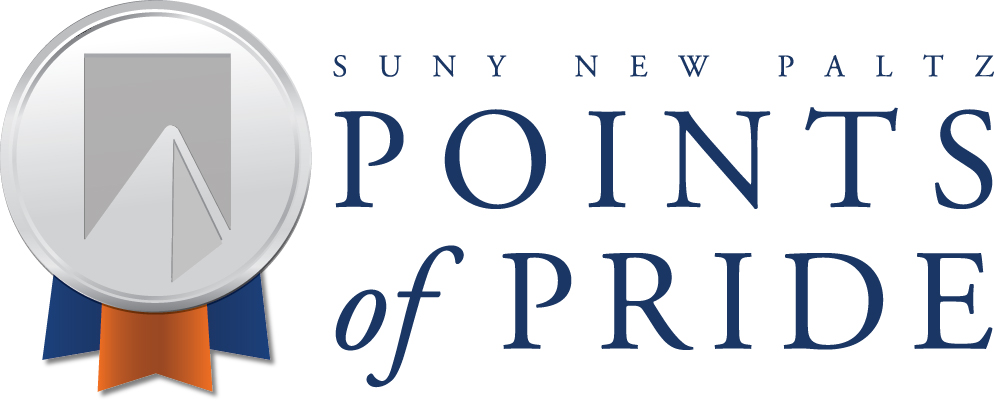Ongoing Energy Initiatives
- Energy Master Plan – The Energy Master Plan builds upon years of energy management work while the college’s Energy Management Coordinator Brian Pine served as the Director of Operations. The Office of Campus Sustainability hired EYP Energy, the same firm that provided technical consulting to complete the Campus Sustainability Plan. New Paltz is one of the first SUNY campuses to complete the first phase of the campus-wide Energy Master Plan, the preliminary building energy use analysis. EYP engineers are now in the second phase, the comprehensive energy audit (ASHRAE Level II) and are investigating the mechanical and electrical systems of every building on campus. EYP will make recommendations to the campus on how the campus can further conserve energy and improve the energy efficiency of existing building systems. This work will guide the campus’ energy work for years to come.
- Metering Monitoring and Analysis – “You can’t manage what you don’t measure!” Campus Sustainability Coordinator Lisa Mitten thrives on analyzing data. With the entire campus submetered for electricity, natural gas, water, and high temperature hot water (a number of the res halls are not yet submetered for HTHW), there’s endless opportunity for energy data analysis. With this data, Lisa analyzes the effectiveness of day to day and year-to-year conservation efforts, controlling for heating and cooling degree days. Which buildings should we concentrate our energy efforts on that have the biggest bang (energy savings) for our buck (investment of time)? How much did winter session setback save the campus’ heating and electric bills? Why is one air-conditioning building’s energy use pattern not increasing its electric use during the summer like all the other air-conditioned buildings are? Is New Paltz Unplugged effectively inspiring students to conserve energy? How much energy are Crispell Hall and LeFevre Hall (both LEED Gold Buildings) consuming vs. buildings not yet renovated in the Hasbrouck complex? Our metering data feedback into daily energy management decisions.
- Smart & Sensitive Building Scheduling – The next “low hanging fruit” that will drive energy conservation is smart and sensitive building scheduling. Winter heating and summer cooling is a major source of energy use and we’re striving to not heat or cool spaces as much as when they’re not occupied. The Office of Campus Sustainability is developing relationships with building and program liaisons to learn how each building is used on a daily, weekly, and seasonal basis. We analyze how buildings are used (ie. spaces occupied year-round vs. spaces occupied only during the academic year) and how the building is separated into programmable heating and cooling zones. We identify opportunities when entire buildings or segments of buildings are not in use and “set back” the building’s heating and/or cooling system from “occupied mode” (day-mode) to “unoccupied mode” (ie. night-time mode). The Office of Campus Sustainability and our partners in Facilities Operations have been actively setting occupied and unoccupied schedules throughout the school year in all buildings that we have centralized controls. During the summer of 2014, we worked closely with faculty and staff that schedule, work, and teach in Van Den Berg, Humanities, and the Resnick Engineering Building to smartly schedule these buildings.
- Winter Session Setback – From late December to late January, many buildings on campus are not in use or only portions of buildings are in use. Each winter, Facilities Management, dials back the heat on buildings or portions of buildings to a level that significantly reduces energy consumption, but does not put the building at risk for freezing. The Office of Campus Sustainability documented nearly $50,000 of electricity and natural gas savings during the 2013-14 winter session setback program.
- Campus-wide exterior lighting upgrade – With support from Central Hudson’s Commercial Lighting Program, SUNY New Paltz will be upgrading 70% of its exterior lighting fixtures to high-efficiency LEDs. You may have noticed that some exterior lights brighten as you walk by. Many of the new lighting fixtures will incorporate this technology. The college is contributing $150,000 to the project and Central Hudson is providing matching funds of $150,000. The project is estimated to reduce the college’s electricity bills by $67,000+ each year.
- Electric Vehicle Car Charging Station – A dual port EV car charging station is near completion at the Route 32 parking lot. SUNY New Paltz’s first EV charging station is one of a growing network of EV charging stations across New York State designed to facilitate the wider adoption of electric vehicles. Additional EV charging stations are planned for other locations across campus.












